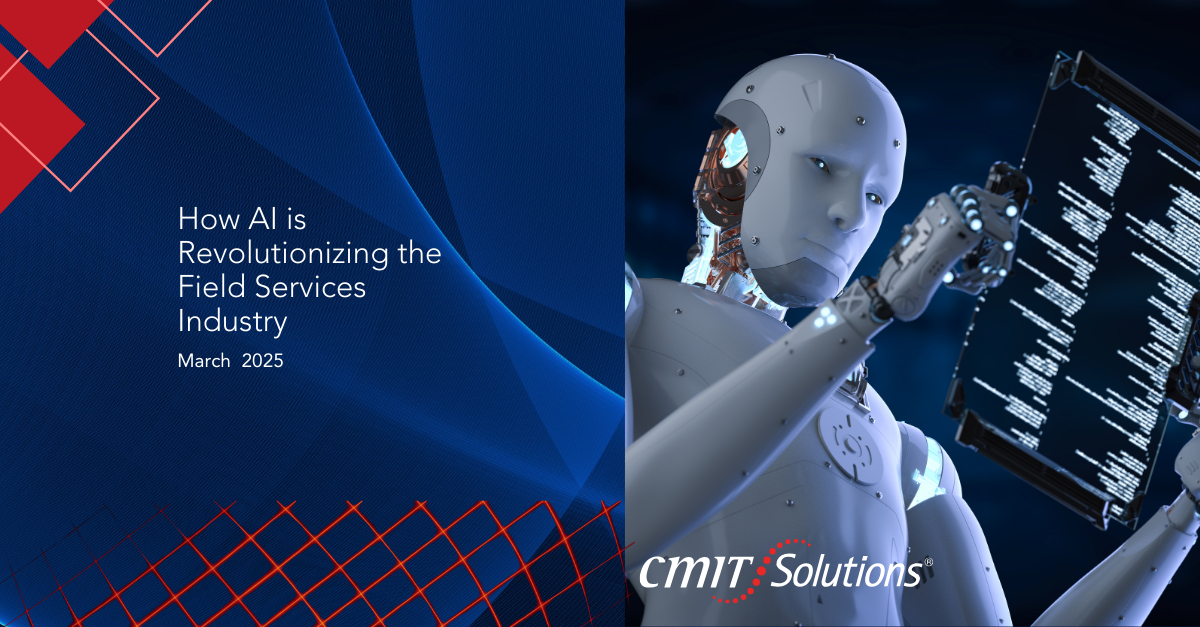The field services industry is undergoing a significant transformation. With a large segment of experienced technicians reaching retirement age, businesses are grappling with a widening knowledge gap. At the same time, younger generations, including Millennials and Gen Z technicians, are stepping into these roles—bringing fresh ideas but lacking the deep technical expertise of their predecessors. This generational shift poses a critical challenge: how can companies efficiently transfer accumulated knowledge while adapting to new, AI-powered technologies?
Artificial intelligence (AI) is emerging as the key enabler in solving this dilemma. AI-driven tools and automation capabilities are enhancing knowledge transfer, optimizing workforce efficiency, and helping organizations scale operations more effectively. However, embracing AI requires more than just technology implementation; it demands a strategic approach to bridge the knowledge gap, improve workforce training, and enhance service delivery.
In this Research Journey, we explore how AI can reshape the field services industry, reduce the experience barrier for new technicians, and ensure continued growth and customer satisfaction.
Defining the Problem: The Knowledge Drain in Field Services
As seasoned field service engineers retire, they take with them decades of invaluable expertise. This loss of institutional knowledge threatens service quality, delays project completion, and increases costs for businesses trying to onboard and train new technicians. Compounding this issue is the reliance on legacy equipment that often requires specialized skills—skills that incoming technicians may not possess.
If companies fail to address this knowledge transfer problem, they face several long-term challenges:
- Inability to fill open roles: Hiring managers will struggle to find technicians with the necessary expertise, leading to delays in service delivery and project execution.
- Declining service quality: New technicians may lack the ability to troubleshoot complex technical issues, increasing downtime and reducing customer satisfaction.
- Competitive disadvantages: Organizations that fail to modernize will fall behind competitors leveraging AI for predictive maintenance, remote support, and automated troubleshooting.
- Lost knowledge assets: Without AI-powered knowledge capture, vital expertise will disappear as senior technicians exit the workforce.
By strategically implementing AI-driven automation, predictive analytics, and digital training platforms, field service organizations can overcome these challenges and future-proof their operations. Many companies are already integrating remote IT support to enhance efficiency, as seen in this study on business growth through managed IT solutions.
How AI is Transforming Field Services
1. AI-Powered Knowledge Transfer and Training
One of AI’s most powerful applications in field services is knowledge management and technician training. Companies can deploy AI-driven platforms that capture, store, and analyze historical troubleshooting data, service manuals, and technician insights. Through machine learning algorithms, these platforms can offer personalized learning paths for new hires, accelerating their onboarding and technical proficiency.
For example, AI-powered virtual assistants can provide step-by-step guidance during service calls, ensuring that technicians—regardless of experience—can access the information needed to complete tasks successfully. Companies adopting cloud-based AI learning systems have seen substantial improvements in technician efficiency, mirroring the benefits of cloud-based data backup solutions for business continuity, as discussed in this IT strategy guide.
2. AI-Enabled Remote Support and Augmented Reality (AR)
AI-driven remote assistance tools are revolutionizing how field service organizations provide support. Instead of relying solely on on-site troubleshooting, companies can use AI-powered augmented reality (AR) platforms that enable remote experts to guide field technicians in real time.
By integrating AI-enhanced AR, technicians can:
- Receive live troubleshooting assistance from senior engineers.
- Use AI-powered diagnostic tools to identify issues faster.
- Reduce on-site visits, improving service efficiency.
Industries that have implemented remote service capabilities have already reported reduced downtime and cost savings, similar to the impact of unified communication solutions in streamlining business operations, as outlined in this IT communication guide.
3. Predictive Maintenance and AI-Driven Diagnostics
AI is transforming predictive maintenance by analyzing vast amounts of sensor data from field equipment to predict potential failures before they happen. This not only reduces unplanned downtime but also optimizes technician scheduling for proactive maintenance.
By integrating AI-powered predictive analytics, companies can:
- Identify equipment failures before they occur to avoid costly repairs.
- Automate service requests based on real-time data.
- Optimize resource allocation by prioritizing high-risk service tasks.
AI-driven predictive maintenance models mirror the methodologies used in IT security risk assessments, where organizations analyze cybersecurity threats before they impact operations. More insights on risk-based IT management can be found in this research on cybersecurity threats.
4. AI in Workforce Planning and Recruitment
AI is reshaping workforce planning by reducing the experience barrier for hiring new technicians. Traditionally, companies required years of hands-on experience for technician roles, but AI-powered knowledge transfer systems allow businesses to hire and train candidates faster—even those with limited prior experience.
Organizations that have integrated AI in recruitment and training have successfully:
- Expanded their hiring pool by reducing experience requirements.
- Shortened the learning curve through AI-based training.
- Increased technician retention by providing on-demand learning tools.
This shift aligns with broader trends in business automation, where AI-driven decision-making is improving productivity, as seen in this report on AI-powered business growth.
What Businesses Gain from AI Adoption in Field Services
Companies that embrace AI-powered field service solutions stand to gain significant advantages, including:
- Faster knowledge transfer through AI-driven training and support.
- Reduced downtime and improved service quality via predictive maintenance.
- Optimized workforce management through AI-assisted hiring and scheduling.
- Enhanced customer satisfaction with faster issue resolution.
With AI becoming an integral part of modern IT strategy, field service companies must stay ahead of industry shifts to remain competitive. Similar to how cybersecurity innovations are reshaping IT infrastructure, businesses must integrate AI into their service models to ensure continued success. A detailed exploration of AI-driven security improvements can be found in this guide on small business IT compliance.
Conclusion: AI is the Future of Field Services
AI is no longer a futuristic concept—it’s a necessity for field service organizations looking to overcome knowledge gaps, optimize service efficiency, and future-proof their workforce. Companies that invest in AI-driven knowledge transfer, remote support, and predictive maintenance will gain a competitive advantage in a rapidly evolving market.
As industries continue to digitally transform, organizations that delay AI adoption risk falling behind. Embracing AI-powered solutions ensures a seamless transition from traditional field service operations to an automated, data-driven future.
Field service organizations that integrate cutting-edge AI technologies can ensure sustainable growth, reduced operational costs, and increased customer satisfaction—much like businesses that leverage managed IT support for enhanced cybersecurity and operational efficiency. More details on AI-driven field service management and IT resilience can be explored in this comprehensive guide on IT business continuity.




